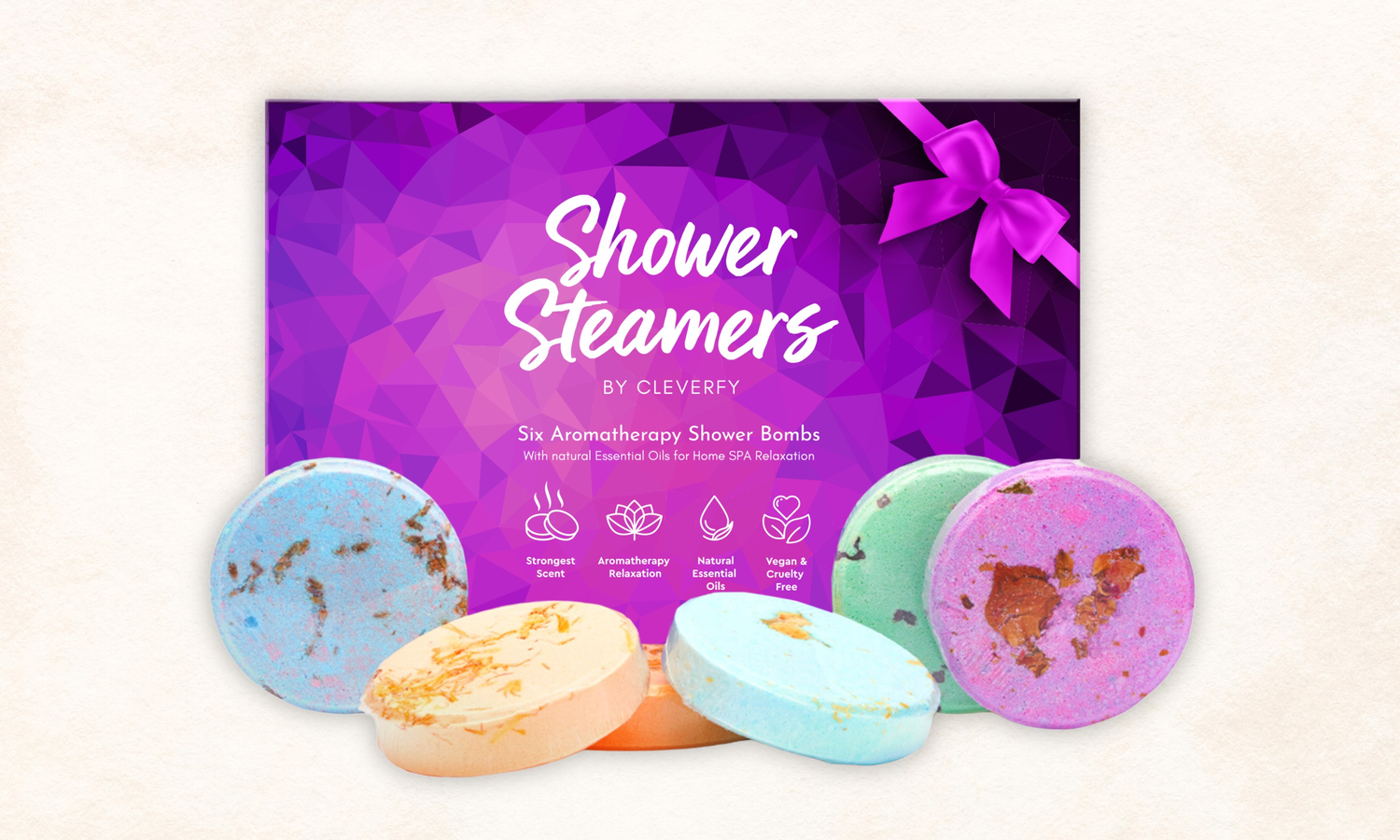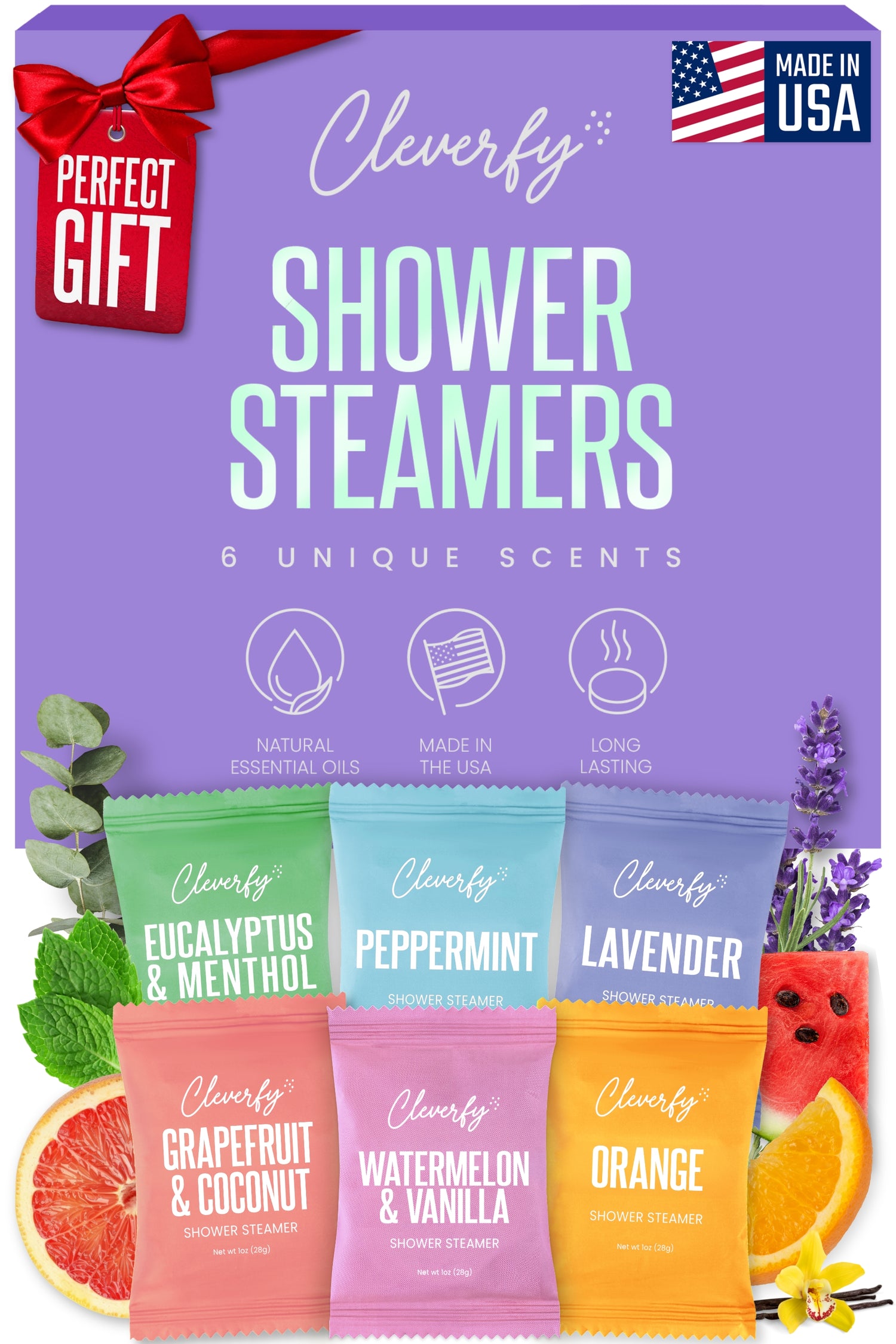Essential oils have been used for over 6,000 years due to their vital medicinal and aromatic properties. Today, the essential oil is often used in aromatherapy and naturopathy.
Essential oils are concentrated liquid extracts of plant roots, bark, seeds, leaves, and flowers, that retain the natural scent and flavor, or "essence," of their source. They are compounds obtained through stream/ water distillation or mechanical methods, like cold pressing. Each essential oil consists of unique volatile aromatic compounds which give its characteristic essence.
How Do Essential Oils Work?
Aromatherapy is, also known as essential oil therapy, is normally used through inhalation or skin absorption.
Inhalation: the essential oils evaporate into the air using a diffuser, spray, or activated shower steamer tablet. Inhaling essential oils stimulates the olfactory system-the part of the brain that includes all organs and cells relating to the sense of smell. The olfactory system is connected directly to the limbic system in the midbrain, where the emotions and memories are processed. During inhalation, the essential oils' volatile molecules enter the nose and stimulate the brain through receptor sites. These scent-related signals affect the limbic system's amygdala, which has direct links to those parts of the brain that control breathing, blood pressure, heart rate, hormone balance, stress levels, and memory. That explains why smells often set off flashbacks and emotions. In this way, many believe that essential oils can benefit the mind, body, and mood.
Topical application: Essential oil containing bath & body products, massage oils, and skincare are absorbed through the skin. Massaging the skin where the oil is to be applied can promote blood circulation and speed up absorption.
Benefits of Essential Oils
Essential oils in aromatherapy support the conventional treatment of various conditions.
- Anxiety, Stress & Depression: Essential oil are extremely helpful in managing the mood; whether you feel emotional or physical tension, fear about what's to come. Citrus essential oils like bergamot, mandarin, sweet orange, and floral oil such as rose and lavender are popular aromatic oils for worry-reducing effects and promoting happiness. Linalool, in lavender, is well known for its ability to promote calmness and reduce anxiety or related restlessness. Plus, these essential oils improve sleep quality and effectively battle stress-induced insomnia. Rose essential oil, on the other hand, acts as an anti-depressant. It is thought that rose oil promotes the release of dopamine - a chemical messenger. Dopamine plays a role in feeling pleasure and has an essential role in the uniquely human ability to think and plan.
- Headaches & Migraine: For example, lemongrass aromatherapy helps ease headaches and migraines. The experts believe that eugenol- a compound in lemongrass essential oil- has similar abilities to aspirin, affecting serotonin and blood-platelet action, two factors that link to headaches. Lavender oil also has been used to relieve headaches for centuries.
- Muscular, Joint & Body Aches: Aromatherapy with sweet orange essential oil seems to relieve the pain of sore muscle and joints due to its powerful anti-inflammatory properties. Moreover, science-backed studies suggest that peony might block chemicals produced by the body that result in muscle cramps. Moreover, bergamot oil features linalool and carvacrol that have pain-easing and anti-inflammatory effects on the skin.
- Menstrual Cramps: Aromatherapy of lavender oil is effective in reducing the pain of menstruation (a.k.a, primary dysmenorrhea)
- Common Cold: Camphor and menthol containing essential oils such as eucalyptus and peppermint help clear airways, loosen up the phlegm, and clear out stuffy nasal passages whenever you hit a cold.
In addition to the above claims, anecdotal data supports those essential oils are effective in toothache & mouth sores, skin conditions like psoriasis, and digestive disorders.




